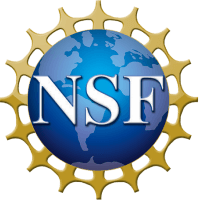RSS feed source: National Science Foundation
Synopsis
The intent of this solicitation is to request proposals from organizations who are willing to serve as resource providers within the NSF Advanced Computing Systems and Services (ACSS) program. Resource providers would (1) provide advanced cyberinfrastructure (CI) resources in production operations to support the full range of computation, data-analysis, and AI research across all of science and engineering (S&E), and (2) enable democratized and equitable access to the proposed resources. The current solicitation is intended to complement previous NSF investments in advanced computational infrastructure by provisioning resources, broadly defined in this solicitation to include systems and services, in two categories:
Category I, Capacity Resources: production computational resources maximizing the capacity provided to support the broad range of computation, data analytics and AI needs in S&E research; and Category II, Innovative Prototypes/Testbeds: innovative forward-looking capabilities deploying novel technologies, architectures, usage modes, etc., and
Click this link to continue reading the article on the source website.
